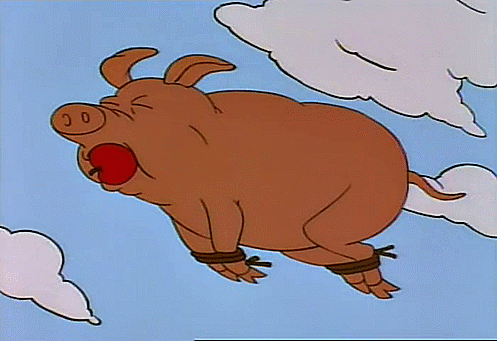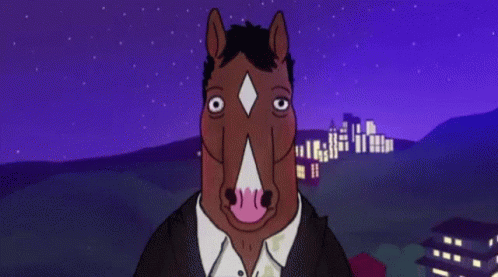Let’s dive a bit into the meaning, origin and use of another intriguing idiom.
Meaning
“When pigs fly” is used to describe figuratively something that most likely will never happen.
“Mark plans to tidy up his room every week, but he will probably do it only when pigs fly”
Which means that Mark will never clean his room.
Alternative versions of this idiom are “pigs might fly”, “pigs can fly”, “pigs will fly”, or “pigs may fly”.
Mark: “I’ll tidy up my room later this afternoon”
Mom: “Yes, and pigs can fly.’"
Origin and Etymology
This idiom, probably coming from a traditional saying, is attested for the first time in the 1616 edition of John Withals’ English-Latin dictionary, titled, in the old English of the time: A dictionarie in English and Latine: devised for the capacitie of children, and young beginners. The original version of the idiom reported in this book was: “Pigs fly in the ayre with their tayles forward” (again in old English).
A couple of centuries later Lewis Carroll mentioned it in his Alice’s Adventures in Wonderland (1865):
"Thinking again?" the Duchess asked, with another dig of her sharp little chin.
"I've a right to think," said Alice sharply, for she was beginning to feel a little worried.
"Just about as much right," said the Duchess, "as pigs have to fly...."
— L. Carroll, Alice’s Adventures in Wonderland, Chap. IX, p. 135, New York 1866.[^1]
On November 4, 1909, the English aviation pioneer, John Moore-Brabazon decided he wanted to disprove this authoritative turn of phrase. He put a piglet in a wicker basket tied to his airplane and made a pig fly. This flight is also considered as the first live cargo flight by airplane.

It is interesting to note that also in other languages an impossible event is described with a flying animal:
- In Finnish the equivalent expressions are: kun lehmät lentävät, which translates "when cows fly" and jos lehmällä olisi siivet, se lentäisi, “if cow had wings, it would fly”.
- In German they have the exact same English expression, wenn Schweine fliegen könnten, would literally translate "when pigs can fly" and wenn Schweine Flügel hätten, wäre alles möglich, “if pigs had wings, everything would be possible”.
- Italians say quando gli asini voleranno, which would literally translate "when donkeys fly".
- Also in Portuguese, pigs are the improbable aeronaut, with the idiom quando os porcos voarem, "when pigs fly".
- In Romanian the idiom is identical to English, Portuguese and German, with când o zbura porcul, literally meaning "When the pig shall fly".
- In Spanish the flying animal is the cow: cuando las vacas vuelen, literally "when cows fly".
Isn’t it intriguing that the idea of something impossible to happen is expressed with a flying animal in all of these languages?
Flying pigs are also common in pop-culture. Those of you who are into rock will probably remember Pynk Floyd’s flying pig portrayed on the front cover of their album “Animals” and the song “Pigs On The Wing”.

Finally, can’t forget to mention the memorable scene of the flying pig from The Simpsons. If you missed that episode here you have a short spoiler. Have fun!

Ludwig's wrap-up
Pigs will most likely never fly, but if you put a bit of effort into learning and using new idioms and use Ludwig constantly, your English skills will surely take off.






